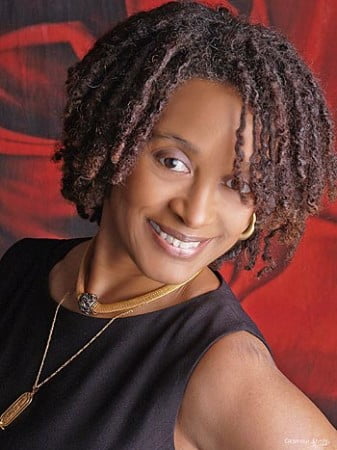Diary of an African American Mother

by Meta Commerse
The news of George Zimmerman’s acquittal came in a way consistent with my experience as a black mother in America: It found me disappointed yet not surprised.
I raised two sons and one stepson to be extra-careful in this world, when extra care might be uncalled for were they not black, that they must be better prepared just to be on equal footing with their white counterparts.
After they became men, I remember talking with them one evening in the family den, thinking first and foremost how fortunate I was to have not lost them to drugs, jail, or death. I felt not quite so fortunate, however, as I listened to them talk about how they walked in public spaces well aware that they were suspect, unwelcome, at risk. Late in July, after the verdict, even President Obama spoke out about this reality.
To steer him clear of conviction, Zimmerman’s defense made use of every advantage the law provides, including multiple changes of venue. How could his attorney say, after the acquittal, that this case had nothing to do with civil rights when the distinctions of class and race surely rested beneath and supported these advantages?
 Lockout. It’s the best word I know for our experience of discrimination and injustice. Lockout – the flip side of white privilege – is a dominant part of the black man’s reality. An honor student, education was Trayvon’s ticket to real freedom and a successful life. With his college scholarship, he was preparing to cross this next developmental bridge, just as he had been taught, following the rules and doing the right thing.
Lockout. It’s the best word I know for our experience of discrimination and injustice. Lockout – the flip side of white privilege – is a dominant part of the black man’s reality. An honor student, education was Trayvon’s ticket to real freedom and a successful life. With his college scholarship, he was preparing to cross this next developmental bridge, just as he had been taught, following the rules and doing the right thing.
How does a young man with such an upbringing, such a record, suddenly decide while walking home to attack an armed adult following him? How does such a young man become a victim of profiling in death, despite who he was in life?
Is there such a thing as an isolated incident that has nothing to do with civil rights or race in a country that denies its racism, its racist history, and its remaining racist traditions and codes? We will mull over these and other questions for a while yet, no doubt. Still, as we contemplate them, I hear echoes of some of our most illustrious ancestors.
Dr. W.E.B. DuBois wrote about a double consciousness: “Living in a world not designed for our success while fighting to protect our sense of identity and value in it, always with something to prove, is a formula for mental illness.” This is the mindset of every person of color in this country so long as white supremacy prevails.
Dr. Martin Luther King, Jr. diagnosed America as having a “schizophrenic personality,” attempting to reconcile its treatment of its citizens of African descent with its founding documents and principles. Today, resisting this conversation, my students insist that “hate has changed,” that things are “not as bad” as they once were.
This may be true. However, until every black youth can grow up without being profiled, threatened, assaulted, or killed, until every black parent can ease up off of the warnings to their children, particularly their sons, to be on guard, until there is equal access to what we need to live, until this double consciousness dies a natural death, I suspect the diagnosis of schizophrenia still applies. So long as it does, we struggle to define ourselves for ourselves, lest, in Audré Lorde’s words, we’re eaten alive.
Meta Commerse, author, playwright, and speaker, holds two masters degrees from Goddard College in Vermont and is an instructor of English and History at Haywood Community College.








Meta, you hit the mark and covered everything that is our life. You highlighted the everyday challenges we face, that are invisible to, or just plain ignored by the ones who believe justice was served. You put it in terms that everyone but the biggest denier could understand. Good job, my friend.